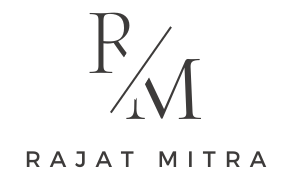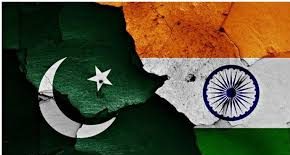“Is your novel about Pakistan and India?” A young woman who was getting her book signed by me at the book launch asked me this question. Puzzled I asked her why does she say that when I had not mentioned it anywhere.
“It is because of the title of your book that I came for the launch,” and added, “I am an Indian and lived in Pakistan for several years as my father was posted there. I heard the word ‘infidel’ thrown at me so many times by local students, even residents.”
“It must have been a difficult experience for you to go through that,” I said trying to imagine what she must have felt. “How did you go through it?”
“I would keep quiet and didn’t know what to say. I never understood why they hate us so much. They would often sneer and tell me that we have attacked you four times and will continue to do so till we annihilate you.”
She took my signature, asked for my email and left after promising to send me her review. I got an email from her within 48 hours. She wrote that she had finished reading the book staying up in the night. She wrote that the book has an uncanny resemblance to what is going on around the two countries and how she sees it as part of broader framework.
“It helped me to understand,” she wrote, “why Pakistan hates us so much. It is the character of Anwar who in your book symbolizes the Pakistani attitude to India. The character of Aditya who resists him symbolizes Indians ever since the two nations have come to exist together. Like the characters of your novel, I also feel that the outcome of this hatred will lead to a similar end that no one can see now. That is what scares me.” Lastly, she said that the character of Anwar also symbolizes the conscience of Pakistan they have killed within and doesn’t exist but hopefully will arise one day.
“The issue between the two nations is religious,” she added, “The growth, the progress of India, Pakistanis cannot explain because in their world view, based on Islam, ‘infidels’ cannot prosper and become stronger than them and it is Islam in their eyes which only can be the key to every kind of prosperity, advancement and growth. The more India grows, the more it is confusing for them as to how they lag behind.”
She ended by saying that she had prayed for the Indian pilot captured across the border and was relieved when he was back. She added saying, “Pakistan would have never done it earlier but have done so because of Modi ji. For the first time they are scared of someone in India. They detest him for this reason and want him to go.”
I was wondering where did she get this insight to draw this comparison when I recalled she had mentioned she works as a humanitarian worker in a conflict zone.
Many readers have told me that my novel has been disturbing to read and I take it with utmost concern. Dr. Robert Rich, a famous psychoanalyst, even said that my novel is not for the squeamish people.
For many Hindus, my book has brought back memories which the slogans from the mosques calling them ‘infidels’ and asking them to leave, made them feel. For others it was painful to read why historically the relationship between the two communities has been on an edge. But this was for the first time that a reader had drawn on her personal experiences of living in Pakistan and building a parallel between the two nations and my characters.
On a second thought I sat back and taking a piece of paper, wrote down the major characteristics of Anwar and Aditya and their struggle and slowly compared them to the two nations, Pakistan and India, and their values. The hatred of Pakistan for India as a nation, is it an existential one and goes far deeper than geography or is the disruption of a shared history and culture where one is seen as superior to other? I believe it may need an exploration.
Anwar cannot tolerate Aditya whom he sees as an infidel. He is indoctrinated in it and is the sole reason why he wants to destroy him. It is just like Pakistan wants to destroy India. Anwar becomes deceptive, scheming and never comes out in the open to attack but always tries to do so while hiding and hitting him with stones.
I could see half a dozen similarities in Anwar’s character and Pakistan’s characteristic as a nation. While Aditya represents a civilizational heritage that is compassionate, sensitive and defensive. Anwar, his antagonist, at first represents a torn limb, a ligament taken out of that structure that since antiquity assimilated everyone who came in her fold. It is like Aditya who wants to absorb and assimilate and carries no hatred within him even though he knows that it was Anwar’s ancestors who destroyed his temple. So when the transformation truly comes in the story for both, it is more in Anwar as he realizes the hatred that defines and engulfs him and why he has to throw it off to rescue what is left as a human in him.
“Will it ever happen to Indians and Pakistanis too, I wonder?”
I believe it will happen if Pakistan begins to understand why their nation came into being. It was not a birth that came out of genuine aspirations of a people or any legitimate grievance or injustice as nations are sometimes born out of as in Bangladesh. It was born out of a notion of inherent superiority secretly knowing that the Congress leaders of that time like Gandhi were demoralized after failure of Quit India movement and the likes of Nehru who secretly supported it because he knew he could only rule over Hindus and didn’t have either the spine or capability to rule over a Muslims as he saw them not listening to Gandhi.
The birth of Pakistan was also based on inherent idea of Muslim superiority over the Hindu population in the subcontinent that sooner or later they would conquer over the rest of India like their predecessors had done in history. If they had lived together it would have been disturbing for them to live under the notion and see its death knell. There was a guilt and fear inherent in the Muslims of India at that time and they didn’t want to introspect further than what Jinnah told them. Will they do it now?
While having ruled over a race for centuries, it is not easy to think of living with them as equals, coexisting under the same roof but knowing that the deepest civilizational values of Hindus has been absorption and assimilation.
Lastly, the division of our motherland into two parts was sudden and one that led into an utter chaos and bloodshed. Hindus have been used to the notion of separation throughout their existence through many concepts like Maya, Anitya or the impermanence of everything that helped them to cope with the onslaught on their civilization. That is why perhaps they have been able to undergo painful separations and emerged not so scathed after centuries. They saw their cities, their homes burnt down, temples destroyed and whole populations uprooted or made into slaves. It is one that is permanently ingrained in our psyche now.
For the Muslims of Pakistan, the separation has been far more difficult than it has been for Hindus because of this hatred for the latter. They could never adapt to that change and transition that their neighbors could undergo. The Muslims of Pakistan needed India to exist and survive themselves. They know it and that is where their deepest anxiety and guilt lie. They needed the non-believers of India to be at war with in order to justify their existence. They have created no other reason, no deeper and higher values that are necessary for the birth and existence of a nation. Without the ‘infidel’ that they ascribe to India as an entity, they are a nobody and will cease to be.
Indians of today have grieved over the partition and moved on from that point, albeit slowly. Not Pakistan and its people. They are still searching for a reason to exist and justify their existence while living in denial, in a half schizoid world where their heroes are ones like Mohammed Ghori, the invader and the killer, Taimur, the bloodthirsty emperor and destructive zealots who hated and tried to destroy the Indian civilization. They revel in their glory forgetting they were all a blur on humanity.
Today, Pakistan is a humiliated nation in the eyes of the world. It will remain so till its people look inwards and decide to change the very script that defines its existence. I pray it happens sooner than later for the sake of peace in the world.

